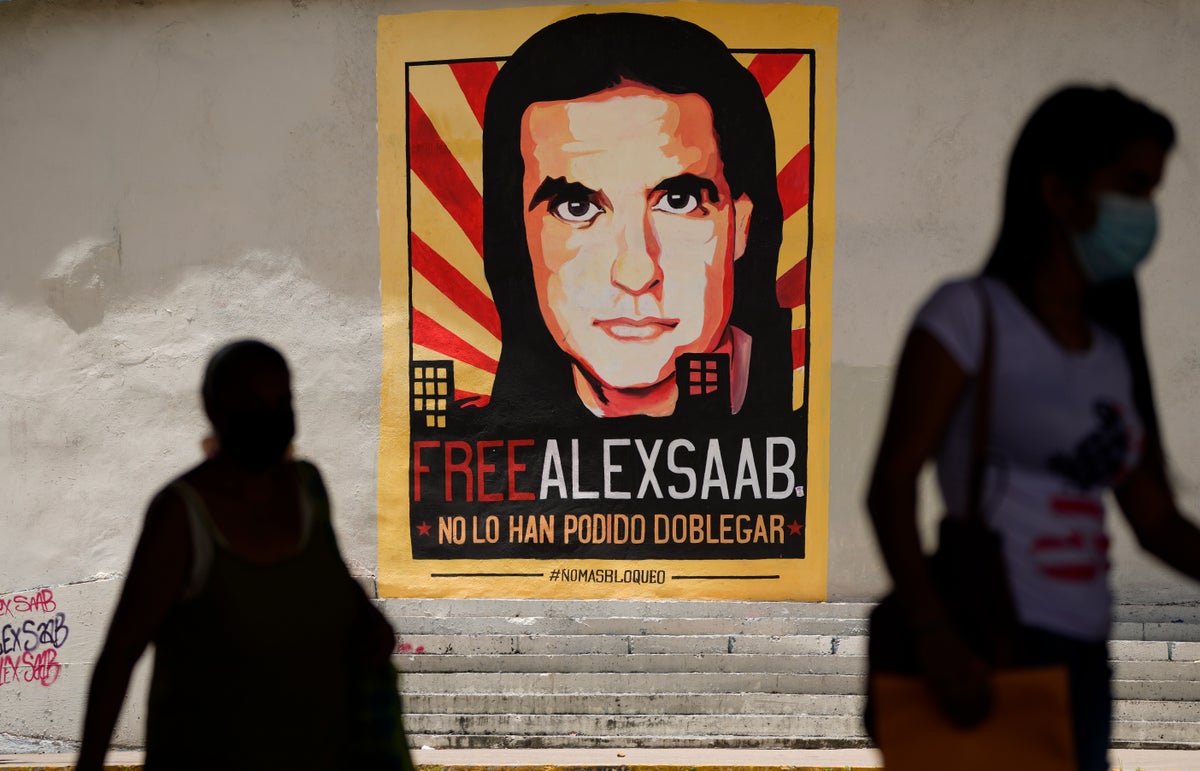
A federal narcotics agent leaked sensitive case information about one of Washington’s top criminal targets in Venezuela as part of a scheme to sell government secrets to defense lawyers seeking to attract deep-pocketed clients, a jury was told this week.
In a wiretapped phone call, U.S. Drug Enforcement Administration Agent John Costanzo Jr. revealed the exact date in 2019 when prosecutors in Miami planned to bring charges against businessman Alex Saab for allegedly siphoning $350 million from state contracts.
The leak, not previously made public, marks yet another embarrassing case of high-profile agent misconduct at the U.S.' premier anti-narcotics agency and could complicate the Justice Department’s already-fraught prosecution of Saab.
Saab has become a cause célèbre among allies of President Nicolas Maduro. The socialist leader claims the Colombian-born businessman is a Venezuelan diplomat targeted for his efforts to bypass American sanctions imposed by the Trump administration. Saab was arrested during a jet fuel stop in 2020 while en route to Iran, where he was sent by Maduro to negotiate oil deals.
But prior to his arrest, Saab was himself signed up as a DEA informant, meeting with agents outside Venezuela, forfeiting millions in illegal profits and agreeing to help deepen their investigation of Maduro’s inner circle, according to prosecutors.
“When we indict someone, there’s a reason that it’s secret,” Michael Nadler, a former federal prosecutor in Miami who charged Saab, told the Manhattan federal jury. “You should not be giving information to assist anybody outside the prosecution team to get clients.”
Nadler's testimony came several days into the bribery trial of Costanzo, who is charged with pocketing $73,000 in cash in return for leaking confidential law enforcement information to his former boss in the agency — and now co-defendant — Manny Recio.
Recio, days after retiring as a DEA supervisor, went to work as an investigator for Miami defense lawyers Luis Guerra and David Macey.
While prosecutors have described the defense lawyers as “crooked attorneys” who “paid handsomely for DEA secrets," they have not explained to jurors why they have not been charged alongside Costanzo and Recio.
Macey and Guerra didn’t respond to requests for comment nor did The Florida Bar, which polices attorney conduct, say whether it had taken any disciplinary action against the two men.
Costanzo and Recio vehemently deny wrongdoing and have said the charges are rooted in “leaps, guesswork and speculation.” They have attacked this week the credibility of key witness Jorge Hernández, a longtime drug snitch who wore a wire for the FBI in this case even after the DEA blacklisted him for extorting other informants. Hernández has pleaded guilty to money laundering and told jurors he hopes his testimony will earn him a sentence of time served.
“The government is seeing ghosts because there was never a quid pro quo,” defense attorney Torrey Young said in her opening statement. “John Costanzo wouldn’t be bought, couldn’t be bought and wasn’t ever bought.”
It’s not clear what Recio did with the information leaked to him about Saab. However, he had been in close communication with Hernández, who was a trusted confidant of Saab and had been enlisted by Recio to help the defense attorneys recruit clients.
“I don't know if you want to make your move now or wait,” Costanzo told Recio, referring to Saab, in one wiretapped conversation played in court Tuesday. “If you get a meeting, let me know and I’ll tell you what to say.”
Saab defense attorney Neil Schuster, who has attended the trial since its outset, declined to comment, citing a judge’s gag order in the case.
Prosecutors have painted Costanzo as a corrupt agent who repeatedly queried a DEA database at Recio’s behest and leaked information to him over a burner phone about several ongoing investigations. One probe involved a high-level trafficker in the Dominican Republic who managed to elude capture for more than four months despite a manhunt involving 700 law enforcement officials.
Both lawmen deleted hundreds of calls and messages in what prosecutors say was an attempt to cover their tracks. In exchange for the leaked information, Recio allegedly directed $73,000 in purchases to Costanzo, including plane tickets and a down payment on a condo.
“Recio knew who would sell DEA’s secrets for cold, hard cash,” Assistant U.S. Attorney Mathew Andrews told jurors in his opening statement. “Costanzo and Recio thought they could get away with it, and they were wrong.”
—
Goodman reported from Miami.







